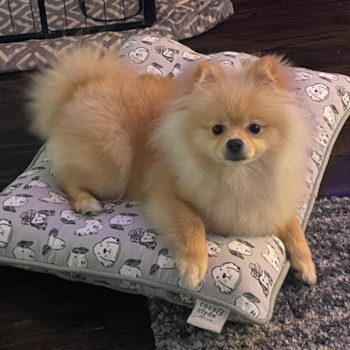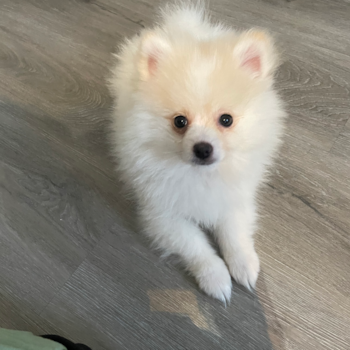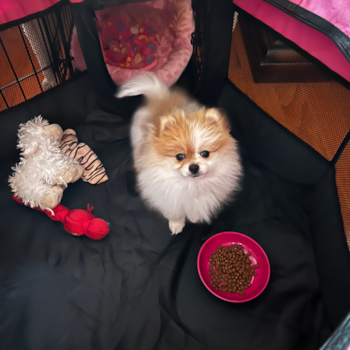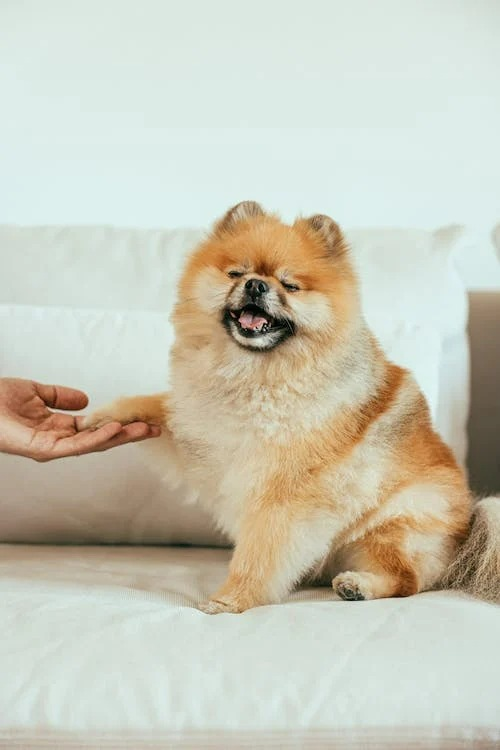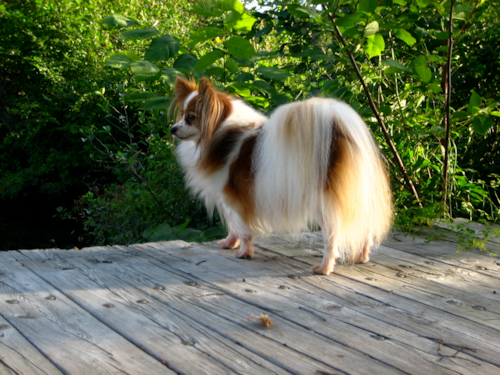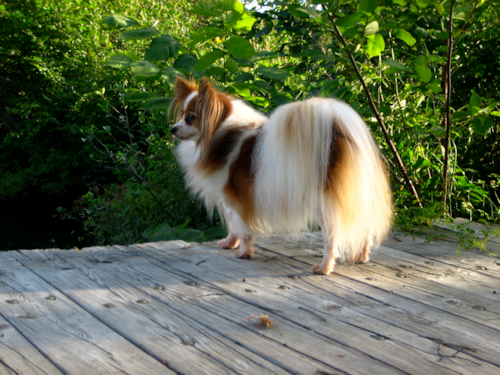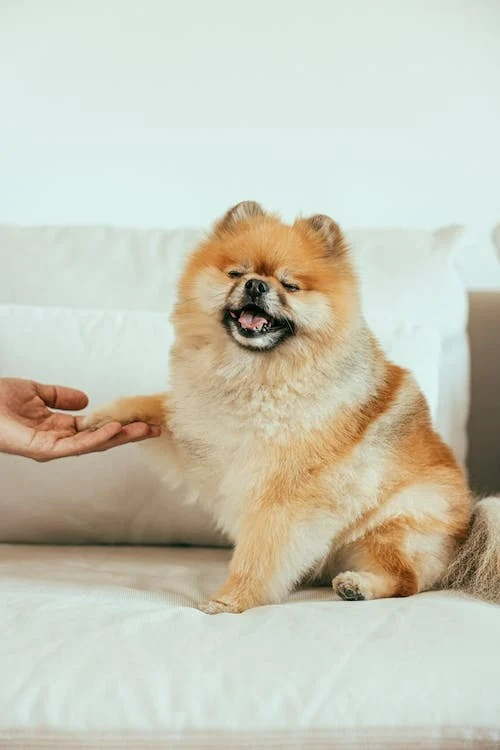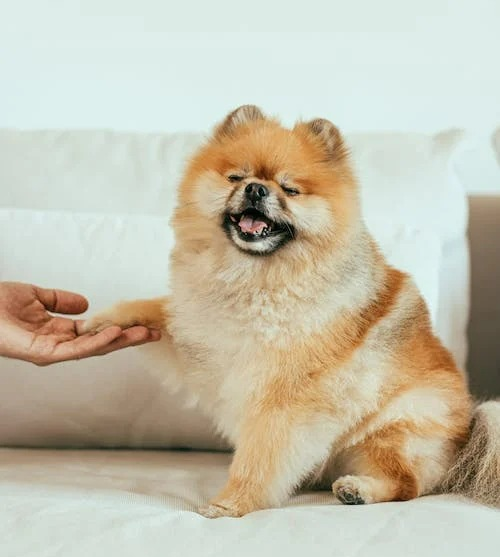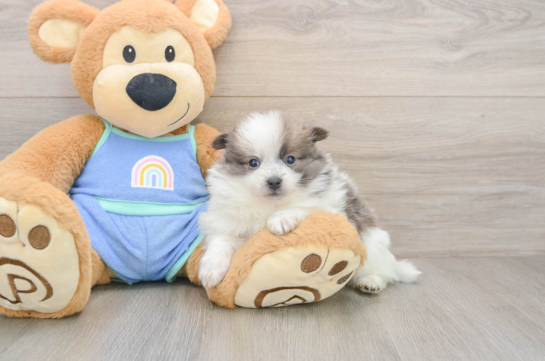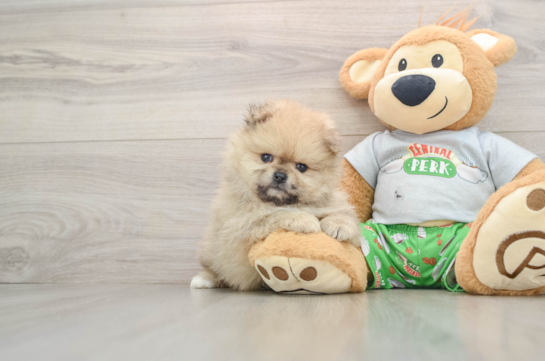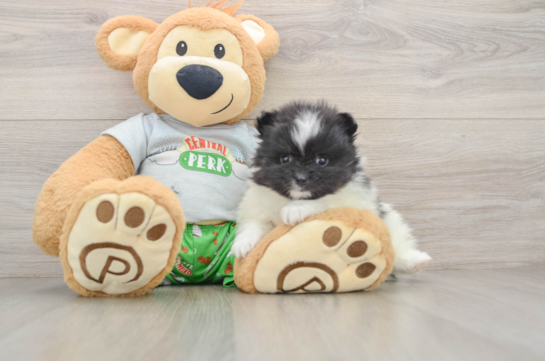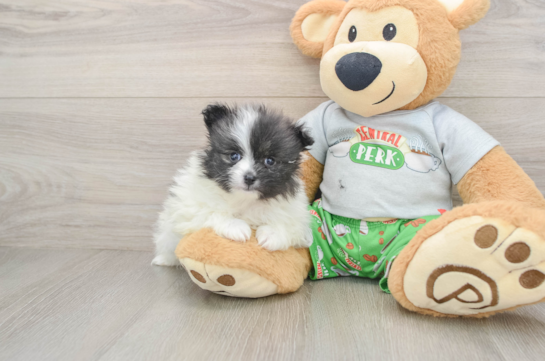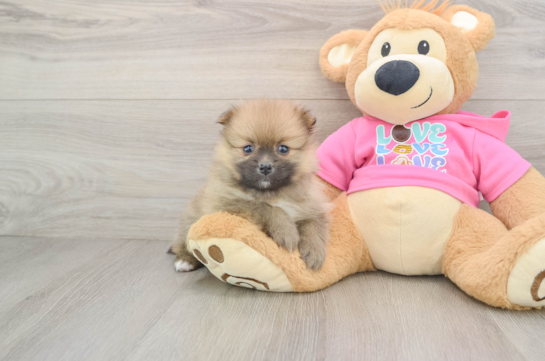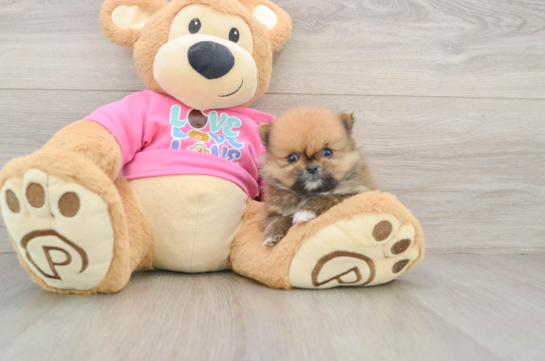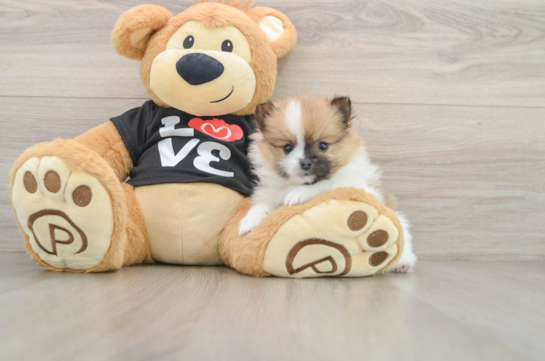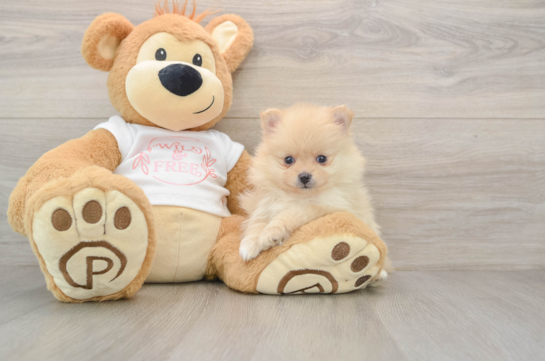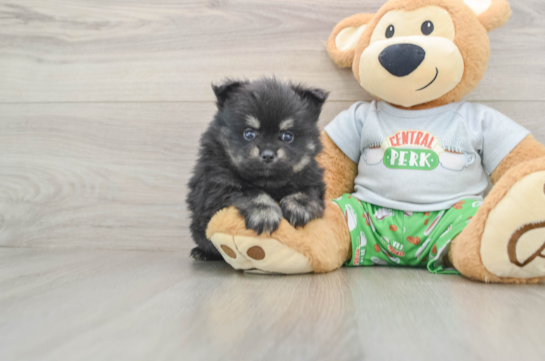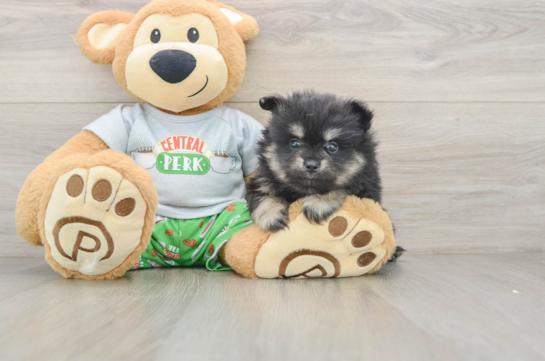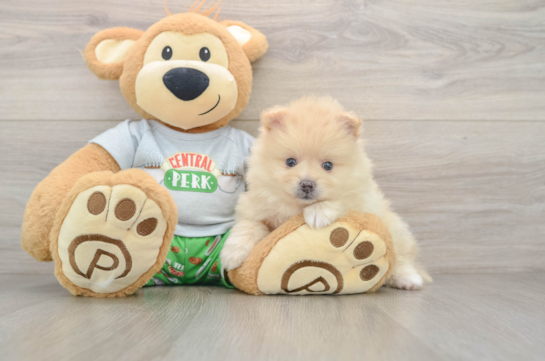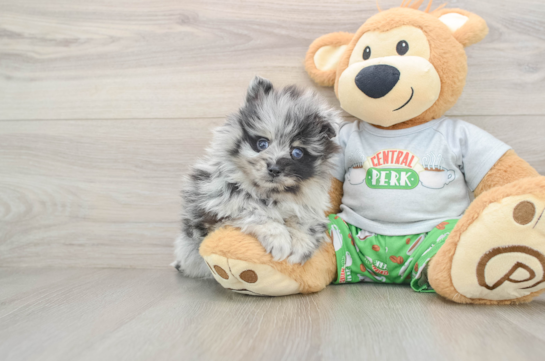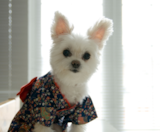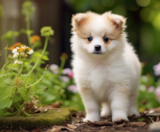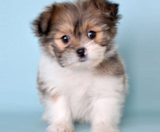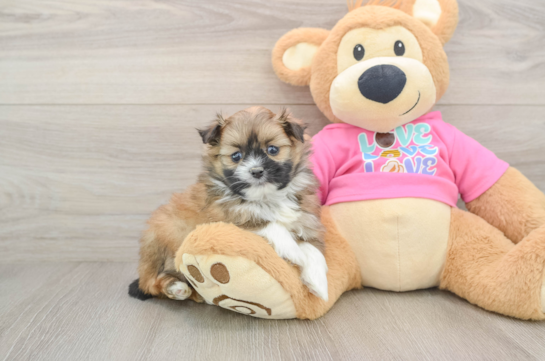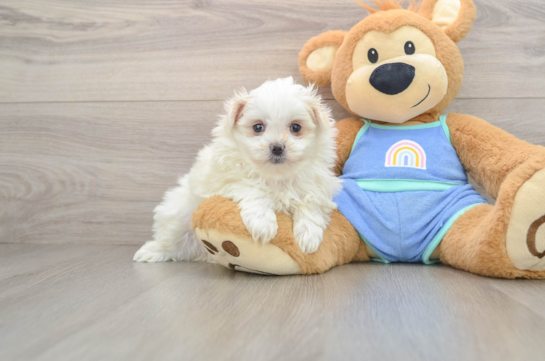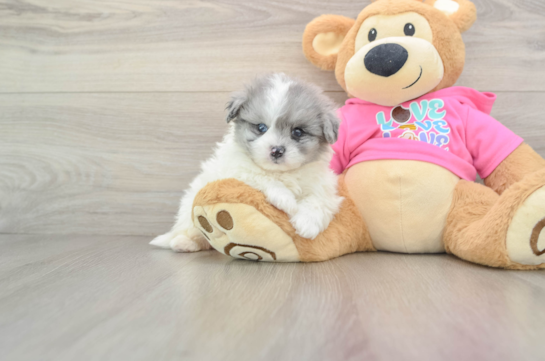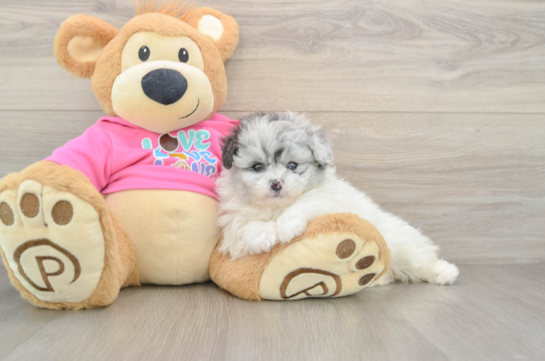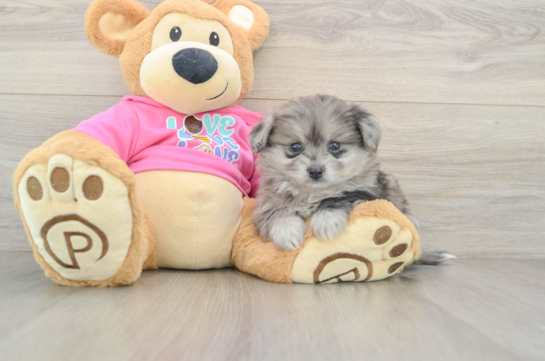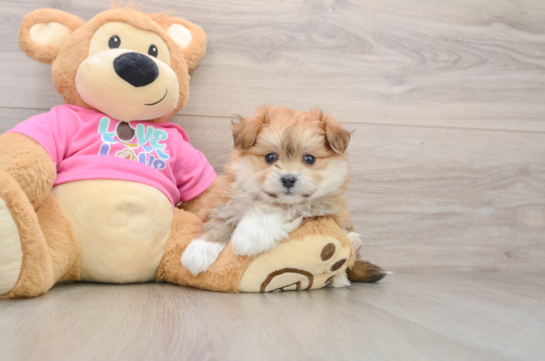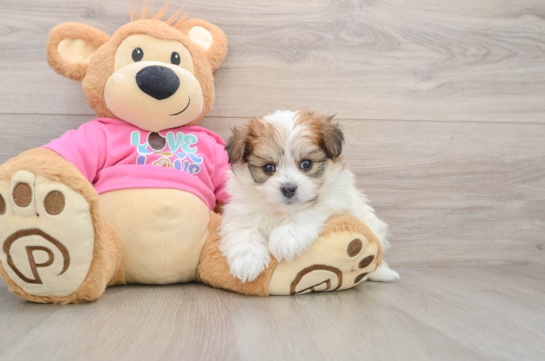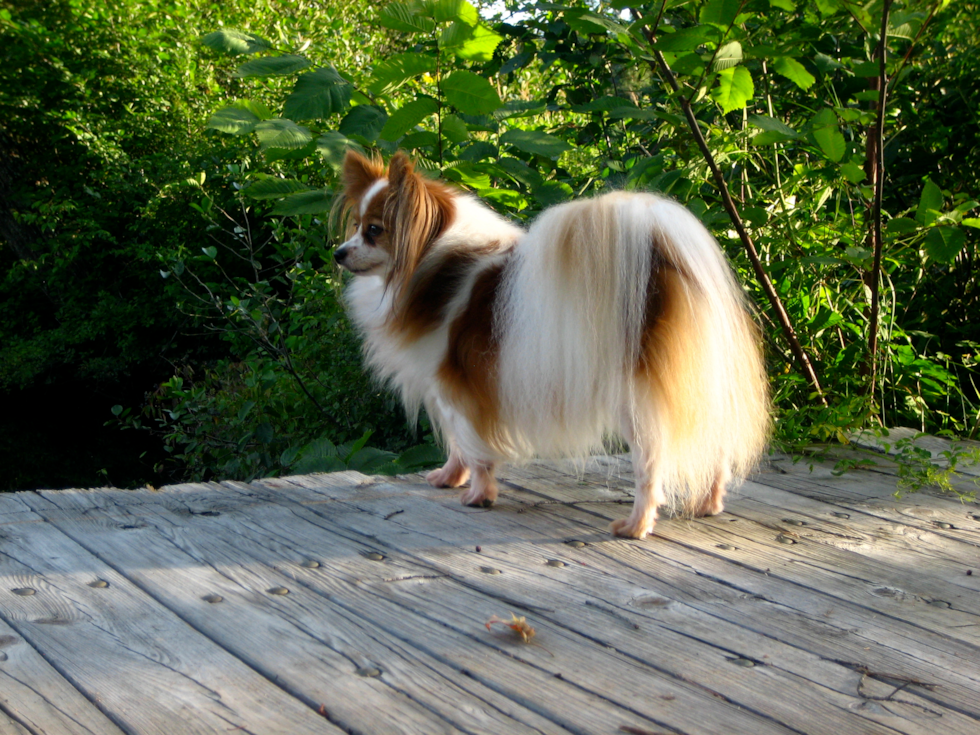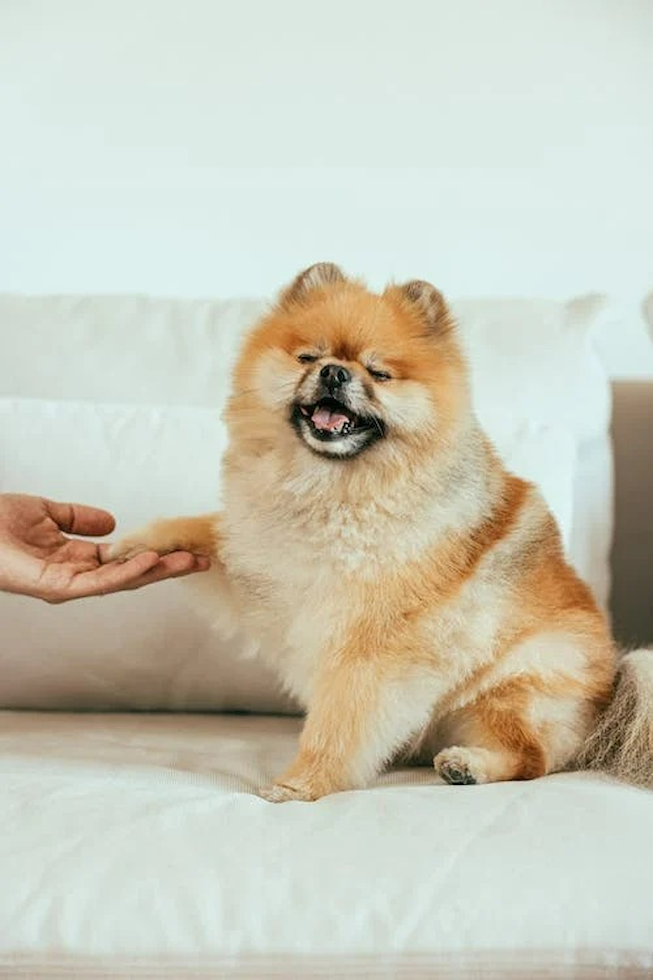
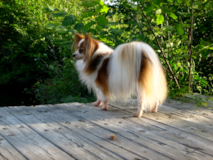

Pomeranian Puppies
Alert ~ Cheerful ~ Friendly ~ Intelligent ~ Playful
Pomeranian puppies are the epitome of canine charm with their fluffy coats and sparkling eyes. These little bundles of joy are known for their lively spirit and affectionate nature. At Pilesgrove Pups, our Pomeranians come with a 10-year health guarantee, ensuring you're bringing home a healthy, happy pup. Raised by humane breeders who prioritize their well-being, our puppies are more than just pets, they're family. Embrace the love, loyalty, and sheer delight that a Pomeranian brings into a home. Reserve your furry friend from Pilesgrove Pups today and experience a bond like no other.
Read moreBREED INFORMATION
POMERANIAN
TemperamentAlert, Cheerful, Friendly, Intelligent, Playful |
|
| Adult Weight | 4-7 lbs |
| Adult Height | 8-11 in |
| Life Expectancy | 12-16 yrs |
| Rating | 5.0 ( reviews) |
| Maintenance |
Low
High
|
| Training |
Easy
Hard
|
| Shedding |
Min
Max
|
| Adaptability |
Easy
Hard
|
| Active |
Low
High
|
Frequently Asked Questions
What is a Pomeranian? The Pomeranian is a purebred toy dog that stands out for its fluffy double coat, fox-like face, and lively personality. Known for their cheerful and playful temperament, Pomeranians excel as companion dogs and adapt well to various lifestyles. Despite their small size, they have a bold, confident nature that makes them charming and engaging pets.
How big do Pomeranians get? Pomeranians grow to 8 to 11 inches tall and weigh between 4 and 7 pounds. Their compact size makes them highly portable and suitable for apartment living. Although small, Pomeranians carry themselves with a sense of pride and agility, reflecting their spunky personality. Their lightweight frame allows them to participate in active play without overwhelming their owners.
Do Pomeranians shed? Pomeranians shed regularly due to their thick double coat, which includes a soft undercoat and a denser outer layer. Weekly brushing helps control shedding and keeps their fur looking clean and fluffy. During seasonal changes, when they shed more heavily, daily grooming prevents tangles and keeps loose fur under control. Regular brushing also helps distribute natural oils, maintaining their coat’s shine and health.
How long do Pomeranians live? Pomeranians live 12 to 16 years, often outliving many other breeds of their size. Proper care, including a balanced diet, routine exercise, and regular veterinary checkups, supports their health and longevity. Their vibrant and affectionate nature ensures they remain a central part of their family for many years, bringing joy and energy to their homes.
Are Pomeranians good with children? Pomeranians bond well with children, especially in households where they are treated gently. Their playful energy makes them entertaining companions for older kids, but their small size requires supervision during interactions with younger children to avoid accidental injury. Families value their cheerful demeanor and their ability to bring laughter and fun to any household dynamic.
Are Pomeranian puppies easy to train? Pomeranian puppies show enthusiasm during training and respond well to consistent guidance. Their intelligence allows them to learn commands quickly, and their alert nature helps them stay focused. Positive reinforcement, including treats and verbal praise, motivates them to cooperate. Early socialization helps them adapt to new environments and reduces any timid behavior, ensuring they grow into confident and well-behaved adults.
Do Pomeranians bark a lot? Pomeranians are naturally alert and may bark frequently to announce visitors or changes in their environment. This trait, inherited from their history as watchdogs, reflects their protective instincts. Training helps minimize excessive barking by teaching them to differentiate between real threats and harmless situations. Their vocal nature can be managed effectively with patience and consistent reinforcement.
How much do Pomeranians weigh? Pomeranians weigh between 4 and 7 pounds as adults. Dogs at the lower end of the scale often appear daintier and resemble their toy breed classification, while those on the heavier side exhibit a sturdier build. Despite their tiny size, they carry themselves with a lively and confident attitude that matches their playful temperament.
Pomeranian Reviews
Pomeranian Breeders
At Pilesgrove Pups, we proudly partner with experienced Pomeranian breeders who share our passion for raising healthy, happy puppies with care and precision. Pomeranians, with their vibrant personalities and loyal nature, thrive in environments where their physical and emotional needs are carefully nurtured. Together with our breeders, we ensure each puppy receives individualized attention, a high-quality diet, and early socialization to help them develop into confident, well-mannered companions. Licensed veterinarians oversee thorough health screenings to confirm every Pomeranian puppy is thriving, healthy, and free from hereditary issues.
Our commitment to quality begins with selecting breeders who adhere to the highest standards of ethical care and breeding practices. We visit our breeders regularly to confirm that their environments are clean, supportive, and designed to prepare Pomeranians for family life. By working closely with breeders who prioritize health, temperament, and proper care, we ensure each Pomeranian is set up for a lifetime of happiness and companionship. When you choose a Pomeranian from Pilesgrove Pups, you’re welcoming a puppy raised with expertise, dedication, and a focus on their long-term well-being.

